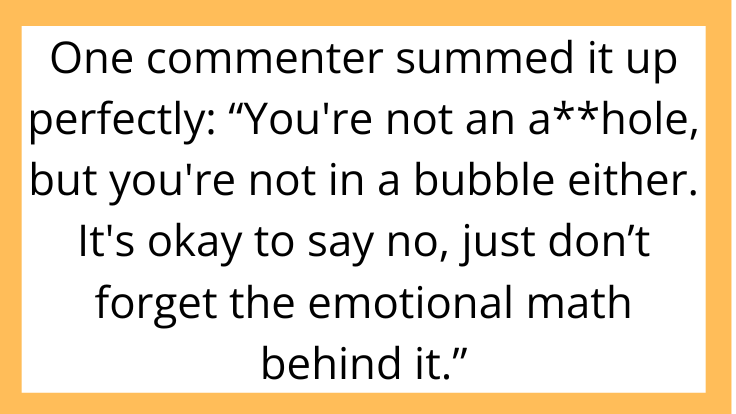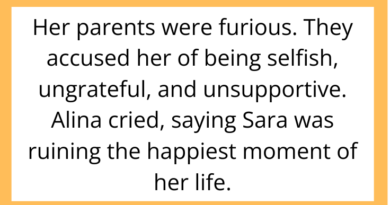AITAH for Not Wanting to Include My Fiancé’s Sister in Our Wedding Party?
Weddings are meant to be joyful, personal celebrations. But when family expectations start clashing with personal choices, things can get complicated—fast. A recent situation posted on r/AITAH involved a bride-to-be who declined to include her fiancé’s sister as a bridesmaid, sparking a family-wide controversy.
In this post, we’ll explore the nuances of wedding planning, family dynamics, and the question at the heart of it all: Does saying “no” to someone close—especially during big life events—make you the bad person?
The Situation: A Guest, Not a Bridesmaid

The original poster (OP) explained that she and her fiancé were planning a small, intimate wedding. OP had chosen her closest childhood friends and a cousin for her bridal party—people she’s emotionally bonded with for years. Her fiancé’s sister, while friendly, wasn’t someone she had a personal relationship with.
When her fiancé suggested adding his sister to the bridal party “to make things even,” OP politely declined. She offered to involve her in another way—perhaps with a reading or a toast—but made it clear she didn’t want to change her bridal lineup. The sister was visibly hurt. The fiancé was confused. And soon, extended family members were accusing OP of being disrespectful and divisive.
The Argument: Tradition vs. Choice
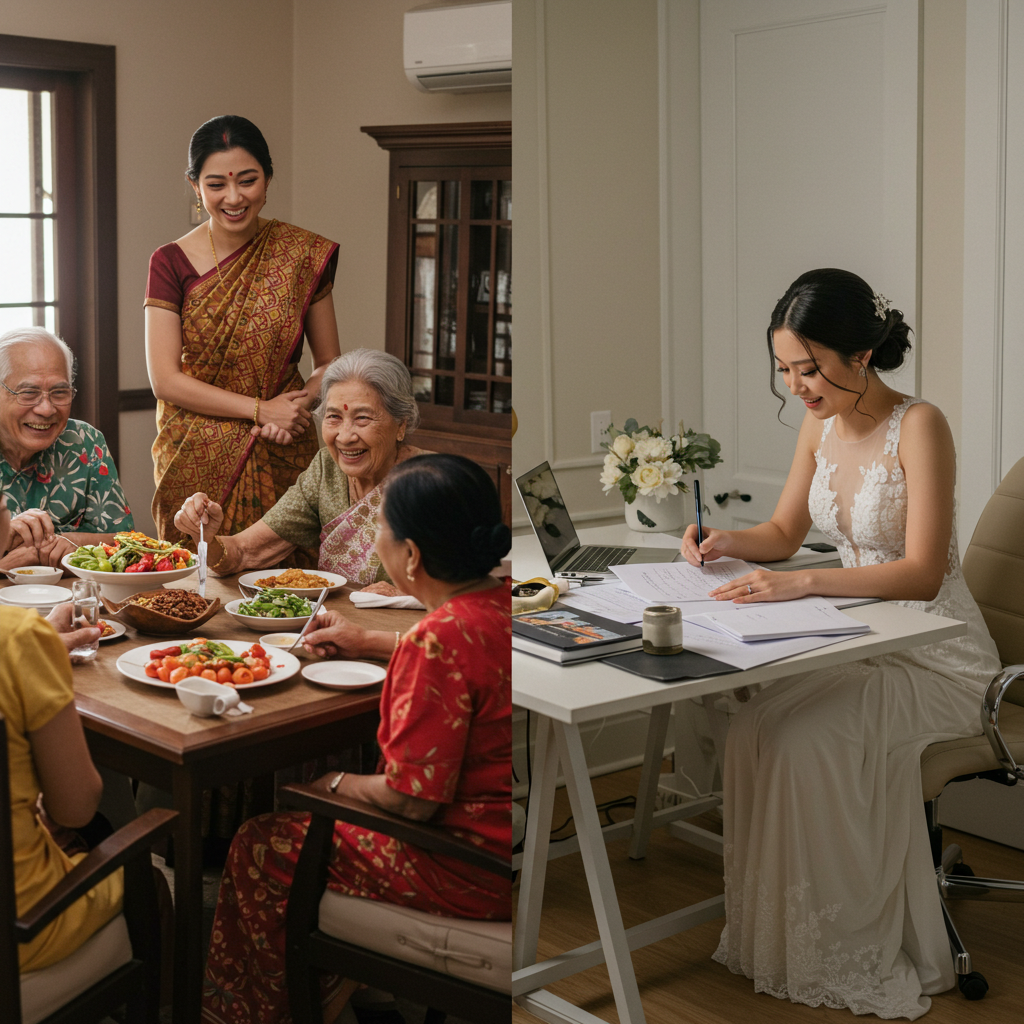
At the heart of this dilemma is a classic tension: should weddings honor tradition and family roles, or should they reflect the couple’s authentic preferences?
Those siding with OP made strong points:
-
The bridal party is personal: It’s meant to be filled with those closest to the bride emotionally—not based on family politics.
-
Forced inclusion breeds resentment: Being pressured to include someone out of obligation can lead to tension.
-
Alternative roles are a valid compromise: OP tried to include the sister in a meaningful way, even if not as a bridesmaid.
But those on the other side argued:
-
Weddings are about family unity: Leaving out a close family member can cause long-term damage.
-
It’s just one more dress: How much harm could it really do to include her?
-
Keeping peace matters: Sometimes compromise helps relationships more than strict boundaries.
Navigating the Politics of Weddings
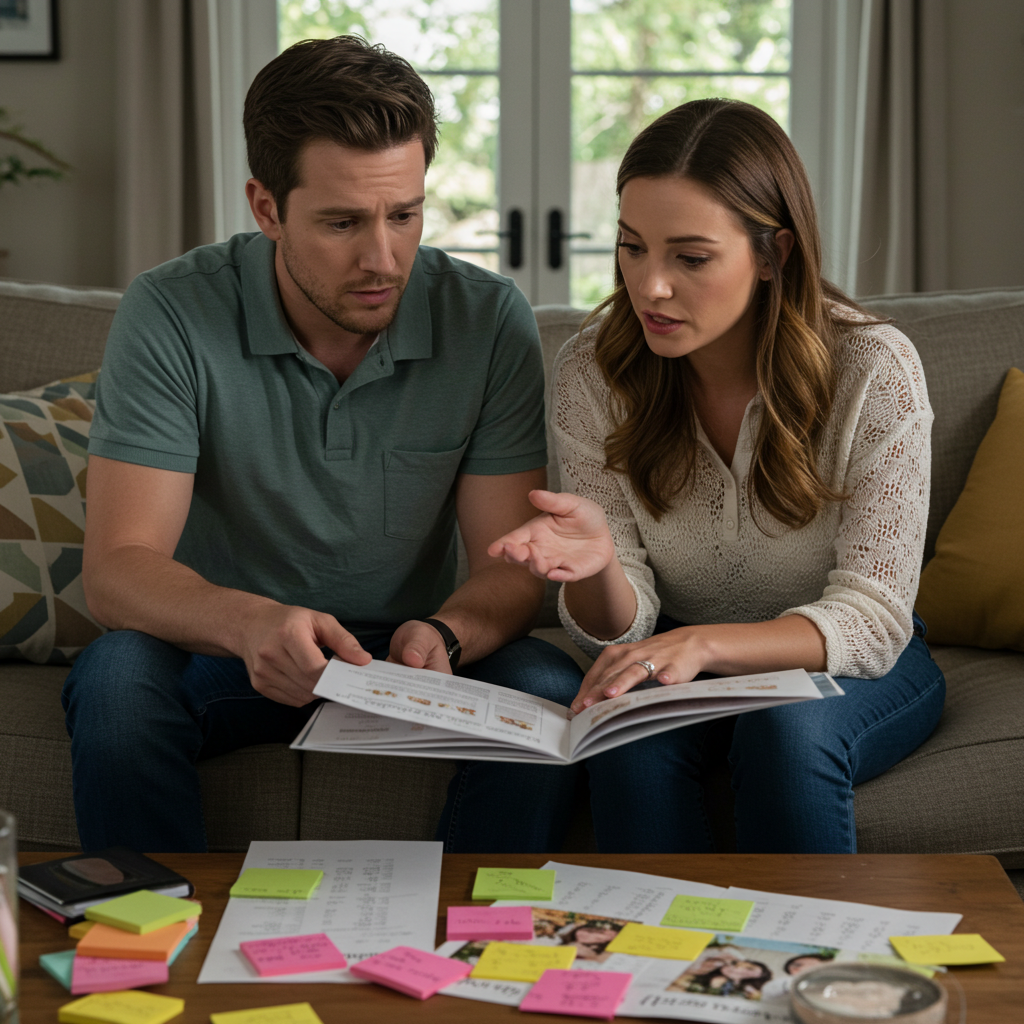
Wedding planning is full of emotional landmines. If you’re in a similar situation, here are a few ways to protect your boundaries while minimizing conflict:
-
Be honest, not harsh: “I don’t know her well enough” is better than “I don’t want her in my photos.”
-
Offer meaningful alternatives: A reading, toast, or role in the ceremony can still make someone feel included.
-
Let your partner in: Your fiancé shouldn’t be blindsided—talk openly about your reasons and listen to theirs.
-
Know your line: If the issue becomes a dealbreaker, it may point to bigger compatibility questions about boundaries and family roles.
Why Boundaries in Big Life Moments Matter

Saying “no” during a wedding isn’t just about the guest list. It’s often a reflection of how you plan to navigate boundaries in your future marriage. Whether it’s setting financial limits, deciding how much time to spend with in-laws, or managing traditions, how couples handle this kind of situation sets the tone for the years to come.
It’s not about being right or wrong—it’s about finding a shared understanding that works for both people.
What Reddit Had to Say

The AITAH community was sharply divided. Some declared OP firmly in the right, emphasizing the importance of maintaining autonomy and authenticity in personal decisions. Others felt OP was being unnecessarily rigid and failing to consider the emotional importance of symbolic gestures in family life.
One commenter summed it up perfectly: “You’re not an a**hole, but you’re not in a bubble either. It’s okay to say no, just don’t forget the emotional math behind it.”
Final Thoughts: Choosing Your Circle With Care
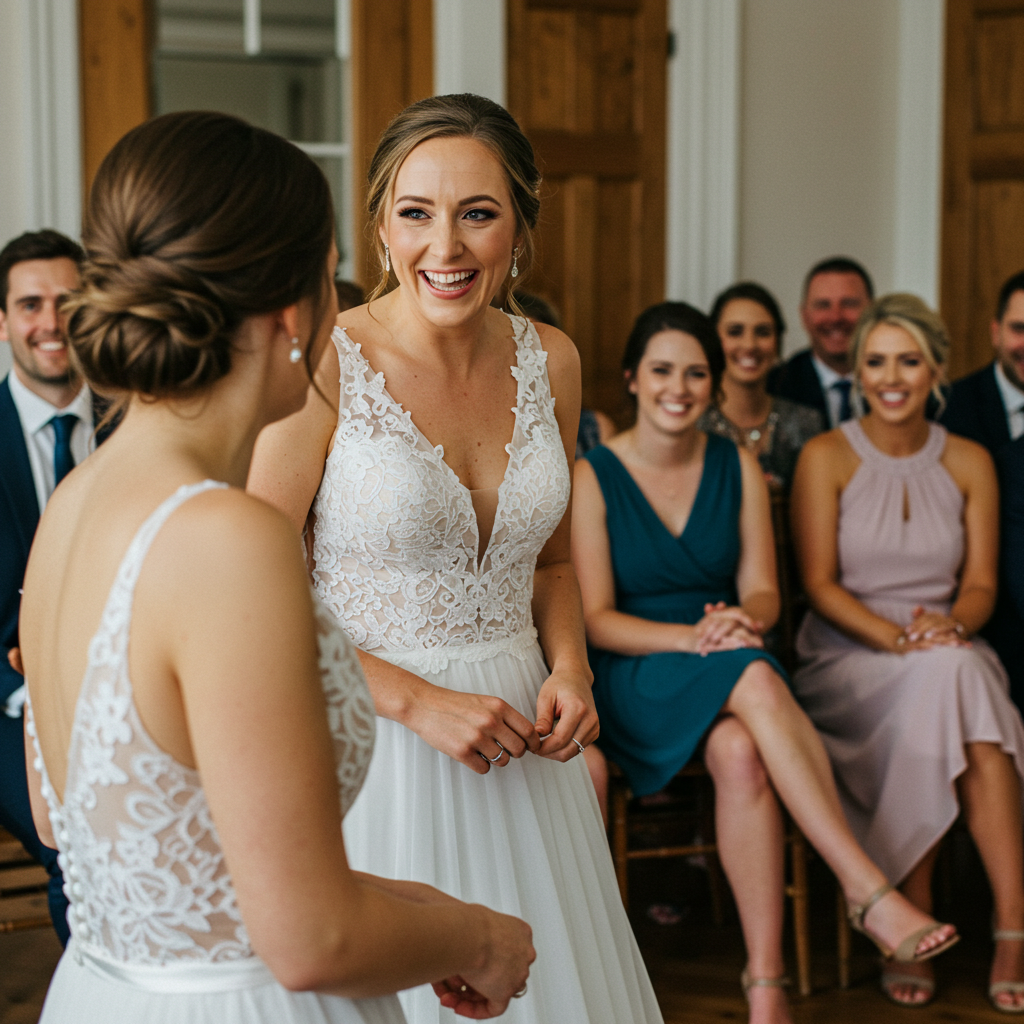
Not wanting to include your fiancé’s sister in your bridal party doesn’t make you a villain. It makes you a person with preferences, boundaries, and a vision for your day. But how you communicate that choice—especially in the context of family—is what defines whether you come across as thoughtful or thoughtless.
It’s your wedding. You get to decide who stands beside you. Just don’t forget who’s watching from the pews—and how your choices make them feel.
